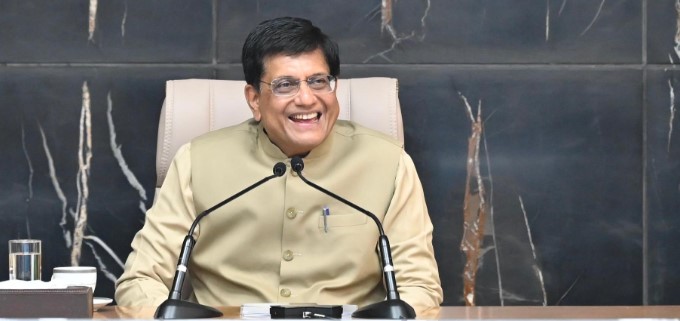
(Photo : x.com)
Trade Strategy Shift: India Reconsiders Laptop Imports
- India's laptop import policy is under review, aiming to encourage local manufacturing and reduce foreign goods dependence.
- This policy change is part of India's broader trade strategy shift, balancing technological advancement with domestic industry protection.
- The policy review comes amidst fluctuating global trade relations, particularly between the US and China.
- The decision could significantly impact global trade dynamics and the technology sector.
India's laptop import policy is currently under review, according to Trade Minister Piyush Goyal. The minister's statement, made on Thursday, comes in the wake of reports last month that the country was planning to limit the import of laptops, tablets, and personal computers after January. This is still under deliberation. It is being handled by the ministry of electronics and information technology, Goyal told reporters.
The proposed policy change is part of a broader shift in India's trade strategy. The country has been grappling with the challenge of balancing its need for technological advancement with the desire to protect its domestic industries. The decision to limit the import of electronic devices is seen as a move to encourage local manufacturing and reduce dependence on foreign goods.
This is not the first time that India has considered such measures. In the past, the government has imposed tariffs and restrictions on various goods to protect domestic industries. However, the proposed policy on laptop imports marks a significant shift in the country's approach to the technology sector.
Global Trade Relations in Flux
The deliberation over India's laptop import policy comes at a time when global trade relations are in flux. The past few years have seen escalating trade tensions between the world's two largest economies, the United States and China. The trade war initiated by the Trump administration led to a series of tariffs and sanctions on Chinese technology companies.
The Biden administration, which took office in January 2021, has been closely watched for its approach to US-China relations. While there has been some speculation that the new administration might be more accommodating of China, it has also been suggested that it might take advantage of the new status quo established under Trump.
In this context, the decision by India, one of the world's largest economies, to limit laptop imports could have significant implications for global trade dynamics. It could potentially impact the strategies of major technology companies and influence the direction of trade policies around the world.
Implications of Trade Restrictions
The impact of tariffs and trade restrictions is not limited to the technology sector. For instance, Christa Pitts, co-founder & co-CEO of The Lumistella Company, makers of The Elf on the Shelf, recently discussed the threat of tariffs from the Trump administration and its potential impact on the holiday retail season.
The deliberation over India's laptop import policy also comes at a time when the Department of Homeland Security (DHS) in the United States has added 29 new entities to the UFLPA Entity List, bringing the total to 107. This move is seen as part of the ongoing efforts to regulate trade and protect national security.
* This is a contributed article and this content does not necessarily represent the views of btin.co.in









